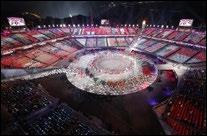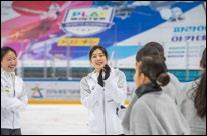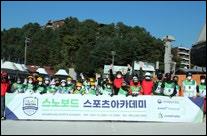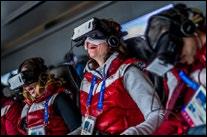PICOSRC 2023
What is an Olympic Studies Centre?
The International Olympic Committee (IOC) has established Olympic Studies Centres to promote and enhance the Olympic Movement and cultivate a global community dedicated to gathering and disseminating the most up-to-date and accurate information related to the Olympic Games. These centers provide support for Olympic studies and research conducted by sports universities, as well as other sports research institutions, professors, and researchers. Currently, there are 65 such centers in 24 countries, including the Olympic Studies Centers at Kangwon National University and Korea National Sports University.
Main Roles of Olympic Studies Centres
|
|
|
||||||
| As part of the IOC, these centres collect and disseminate the latest and most accurate information regarding Olympism. They also work to create and distribute educational programs centered around Olympic values | Compiling and sharing IOC historical archives, the official publications of the IOC and the Organising Committees of the Olympic Games as well as academic books, articles and journals; establishing a network; and promotion of academic exchange | Providing financial support for new and junior researchers to facilitate research, promoting education, lectures, and research activities among professors, researchers, students, and study centres |
Significance of Hosting PICOSRC in Pyeongchang
|
Extending the legacy of PyeongChang 2018 |
Pyeongchang can contribute to the growth of the Olympic legacy and the advancement of the Olympic Games by creating a platform for researchers from around the world to exchange Olympic knowledge. |
|---|---|
|
Advancing the sustainable development of an Olympic host city |
Pyeongchang can solidify its status as a global city by consistently hosting international events, drawing upon the diverse infrastructure and enhanced globalization capacity that were cultivated through its experience in hosting the Olympic Games. |
|
Ensuring the successful hosting of Gangwon 2024 |
We aim to garner increased attention from the global academic community for the success of the Gangwon 2024 Winter Youth Olympic Games, scheduled for January 2024 |
Objectives and Significance of the PICOSRC
1 The PICOSRC has an emphasis on, but is not exclusively about, the Olympic Winter Games including the Winter Youth Olympic Games.
2 The PICOSRC particularly encourages the conversations on reducing the gap between global north and south nations within the Olympic Movement.
3 The PICOSRC aims to foster early career academics in the field of Olympic research and education.
2 The PICOSRC particularly encourages the conversations on reducing the gap between global north and south nations within the Olympic Movement.
3 The PICOSRC aims to foster early career academics in the field of Olympic research and education.
Conference Key Agenda
This year's conference will delve into the most current global research trends, with a primary focus on three crucial agenda items in accordance with the 'Olympic Agenda 2020+5,' which is a future strategy report authored by the IOC.
Agenda item 1
Urban regeneration and revitalization of Olympic host cities
#urban_development #effect_on_the_communities #public_policies #sustainability_of_host_cities #legacy_of_human_being


The conference will analyze the current status of Olympic legacy expansion and examine example cases of urban regeneration. It will also explore strategies for the sustainable development of host cities and the implementation of effective public policies. Additionally, in-depth discussions will revolve around various approaches to harness the Olympic legacies of host cities, including the development of railroad and road networks, as well as regional tourism, to create sustainable legacies and establish a robust ecosystem.
Agenda item 2
Social responsibilities in the expansion of Olympic legacies
#sustainable_winter_olympic_games #fostering_future_athletes #imparity_reduction #sustainable_consumption_and_production


The conference will also address the role of governance in advancing a better world through sports and inculcating a clean and ethical Olympic culture. It will specifically examine the roles required to build a sports ecosystem for future generations in anticipation of the Gangwon 2024 Winter Youth Olympic Games, scheduled to take place from January 19 to February 1, 2024.
Agenda item 3
Integrating digital technology in to a sports ecosystem
#sports_excellence #sports_integrity #virtual_sports_participation #global_communication #digital_sports_education


The COVID-19 pandemic has accelerated global digitization, blurring the boundaries between the physical and digital realms. These shifts in digital trends offer boundless opportunities for sporting excellence and content expansion. In this context, the conference will centre its discussions on the economic and cultural impact that can emerge from the integration of digital technology into the world of sports.




